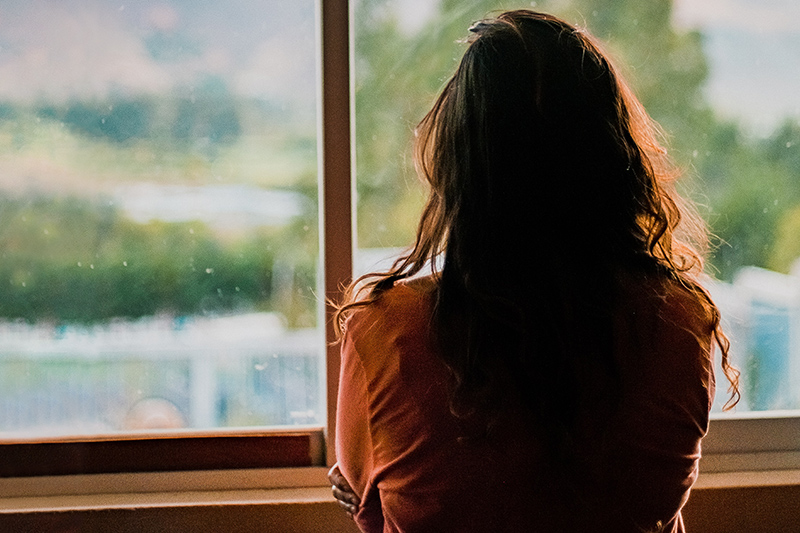Lately, have you been feeling more anxious or sad? Are you having trouble sleeping? Are arguments becoming more frequent in your household?
If you answered yes to any or all of the above, you are not alone.
In Australia, nearly one million people have lost their jobs, businesses are suffering, and everyone has had to adjust to physical distancing rules. It comes as no surprise that the emotional toll of COVID-19 is having profound effects on the mental health of the population.
Book a counselling session today

Families under pressure
Susan*, a counsellor at CatholicCare, has been witness to the psychological impact of COVID for some people from the earliest weeks of the pandemic.
'We work with many individuals and families who were vulnerable prior to the COVID pandemic - people with physical disabilities, those with limited mobility, those who have experienced trauma or are experiencing mental health or wellbeing issues. Where previously we may have had monthly contact, we are now able to offer some clients more regular weekly or fortnightly support to help them through this challenging time.’
‘Often they are struggling with the isolation – their regular physical and mental health support services have been suspended which means no home visits from community services for some. Some of those who are living in residential settings have not been allowed out into the community. Their loneliness is heightened.’
‘For others, it’s about the additional stress that has come with the COVID pandemic. Couples and families who were already juggling lots of stressors have had them increase – communication difficulties, reduced time to oneself and self-care, issues of conflict, increased or additional financial pressures, busy parents who just got a whole lot busier, with many juggling their own workloads with the addition of supporting their child/ren with home schooling. ’
Flexibility of services
When Victoria moved to Stage 3 restrictions, CatholicCare closed its offices to visitors and began offering telehealth services, initially via telephone and more recently with the additional option of video conferencing for some clients.
‘Very few of our existing clients have declined to engage with us via telehealth,’ said Susan ‘and most have adjusted well to telehealth services.’
‘Some clients have really embraced the technology - telephone counselling can make some clients feel less vulnerable and therefore they are more ‘real’ and open during appointments. Some have been more focused and have their pens and paper with them to take notes during sessions.’
‘For some clients we have made adjustments in our service delivery. For example, some couples counselling clients have received individual support during this time. For some clients, whose households might be busy with young children, or those who are unable to engage in a full counselling appointments, we have found that brief phone sessions can be effective.’
‘We have also taken to posting resources by mail or emailing links to handouts and online resources which we can then discuss during appointments.’

Relationships strained by lockdown
While increased loneliness has been one of the impacts of social distancing measures, for some people it is the ‘forced togetherness’ that is having an effect on emotional wellbeing.
‘Being forced into isolation together can result in very difficult couple and family dynamics, especially where there may have been pre-existing conflict,’ said Susan. ‘Some couples may have previously decided to separate but since COVID they have been forced to remain under one roof, adding great tension to relationships that were already strained.’
‘We also work with separated families to support the development of effective strategies for co-parenting, and complex cases where there are family violence or child protection issues.’
The importance of asking for help
While CatholicCare has seen a surge in new clients reaching out for Emergency Relief, new referrals for counselling services have slowed down; a trend reported by other Family and Relationship Service providers nationally.
One possibility is that people are reluctant to access services while restrictions are in place; or they are simply too busy and overwhelmed to reach out for support.
‘Our counselling service is currently free,’ says Susan, ‘you don’t need a referral, and you don’t need to leave your home.’
‘We are living in a challenging time and it is ok to ask for help.’
In the coming months, as social distancing measures are relaxed in Victoria, we can be sure that life will not magically snap back to how things were before COVID-19. For Australia, economic recovery will be a long journey – and for many people, the impacts of continuing isolation, job losses and strained family relationships will endure for some time.
Counselling can help to address the emotional impacts of the pandemic experience, giving people the tools to navigate their own emotional recovery. If you, or someone you know, would like to find out more about how counselling can help, please visit our website page at www.ccam.org.au/counselling
Book a counselling session
Bernadette Garcia, Executive Manager Communications, Fundraising and Marketing
*Name changed.
Read more: